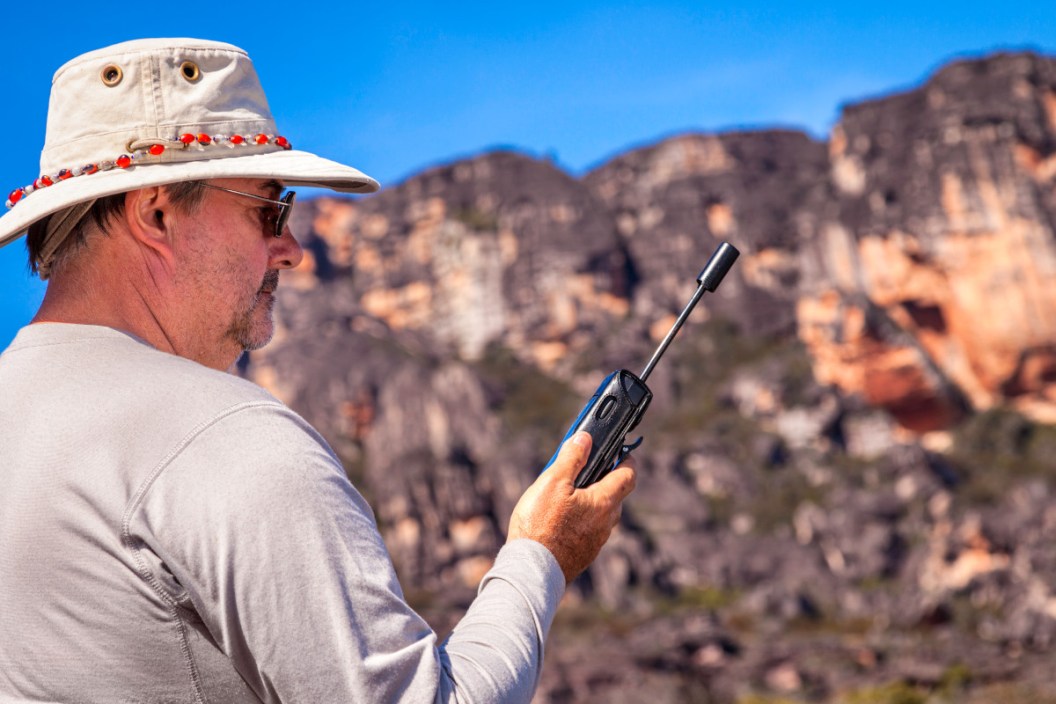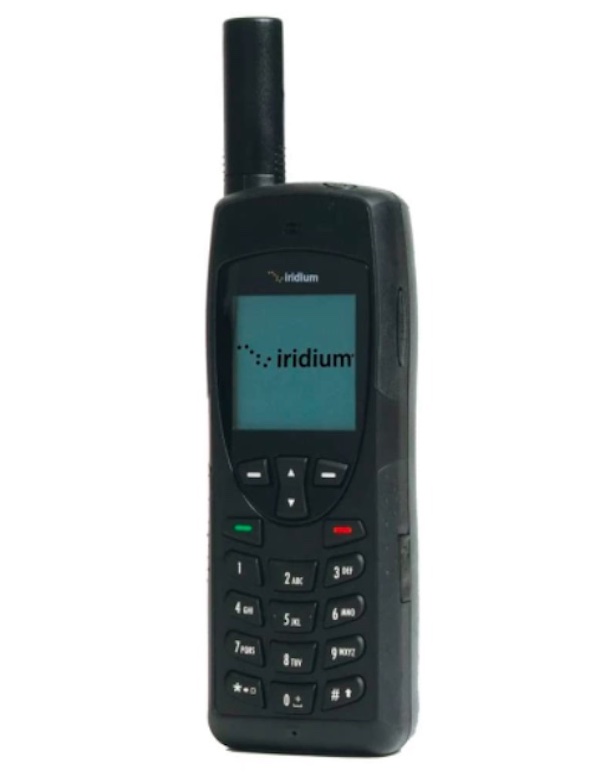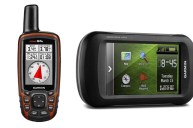Modern technology is double-edged sword as far as our outdoor activities are concerned. On one hand, the whole point of wandering deep into the backcountry is to get a break from the constant incoming calls and text messages. To recharge and reconnect with nature in a primal way. But on the other hand, having a phone that doesn't rely on land-based systems to keep you in communication with emergency personnel or even your family in the event of an accident or emergency can mean the difference between life and death. This is where today's satellite phones come into play. This technology is basically an older version of the mobile phone that connects to other phones by radio using orbiting satellites instead of land-based cell towers. The cool thing about that is it allows you to stay connected and you can have communication with the outside world from virtually anywhere on the planet, even the highest peaks of Alaska or the thickest jungles of South America. Most satellite phones are designed for global use and offer safety and security features that cannot be provided by a traditional cell phone. Whether you are on a remote mountain top hiking, or outfitting a serious backcountry hunting expedition, a "sat phone" can be the difference between life and death. Do you really need one? Well that depends on many factors. Let's look at some of them and we'll tell you exactly who is going to get the most benefit from one of these high-tech devices.
Who Could Benefit from a Satellite Phone
The first outdoorsmen that we always think of when we think of sat phone use are those who are part of the hunting community. Outfitters who regularly take clients far off the grid for some of the most prestigious, yet deadly hunts would be smart to have one at all times. If not for the safety of themselves, for that of their clients. After all, the people who hire a hunting guide are usually unfamiliar with the place they are hunting. If something happens to the guide, it can make for a rough time for the clients if there are no communication devices to reach the outside world.
The same goes for charter boat captain services of the world. Sure, these vessels can use CB and shortwave radio, but when it comes right down to it, satellite phones work just fine around fiberglass, aluminum, and most glass surfaces giving the user an amazing way to report problems, even below deck. Besides, we've heard plenty of survival stories where people became lost or stranded with a damaged radio. it's good to have a backup.
In fact, all boaters can benefit from having a satellite phone for exactly that reason. Especially sea kayak enthusiasts who regularly find themselves far offshore fishing along. We also highly recommend these phones for serious hiking veterans and survivalists who expect to be off trail for many days with only the food, water, clothing, and gear they've brought with them. Thru-hikers on systems like the Appalachian or Pacific Coast Trails would be wise to have one with them to reach loved ones or authorities in an emergency.
In short, if you're planning any sort of serious outdoor adventure where communications are a problem due to a lack of cell towers, a phone that utilizes a satellite network is always a good idea. They're also a great idea if you're planning a trip over international borders. Just because you won't have to rely on expensive wandering fees, or mess with foreign SIM cards to place a call.
Who Could live Without a Satellite Phone

Getty Images: apomares
One big downside to satellite phone gear is they usually only work sparingly in deep valleys and canyons. If you are going to be spending lots of time in places like that, you may be out of luck as far as connectivity is concerned. Canyons aside, for many outdoorsmen and women, satellite phones can be overkill too.
This doesn't mean everyday campers, hunters and fishermen can't use a sat phone, only that you need to look at cell coverage maps in your area. With more cell towers going up every day, you may rarely get far enough away from a cell phone tower that you would need it. Unless you are kayaking, paddle boarding deep in the Everglades, or sailing more than a few miles offshore in the ocean, most recreational water hobbies aren't dangerous enough communication-wise to justify the expense of a satellite phone.
Pros and Cons of Sat Phones
Satellite phones have proved their worth for many years for the scientific community, war correspondents, intrepid travelers, and preppers that love the need for such a remote device. Perhaps the biggest pro of these devices is that they give global coverage no matter where you are. And the technology keeps getting better every year. Newer models give solid reliability, are user friendly, and they give your GPS coordinates in times of emergency. Eventually, the standard will probably be smartphone-like technology that give full access to satellite Internet and all the latest apps.
The big downside is that buying a satellite phone is not cheap and purchasing a plan to use it is just as expensive. Sat phone packages can run you anywhere from $1,500 to $2,500 or more, but it's not all bad news. The Garmin inReach is a lightweight satellite communicator which enables two-way messaging, but you will still need to purchase a plan. Another major downside is that many are also nearly impossible to use indoors. This is based on the fact that they need to have direct access to the sky. Many of the cheaper models are also quite a bit larger than traditional cell phones, in the order of a landline phone on steroids.
This may come as a surprise, (and is another unfortunate con to satellite phone use) but there are many countries around the world where the possession of a satellite phone is illegal. The main reason being that they can be used by nefarious organizations to bypass local phone communications and wiretaps. Check local regulations in the country you'll be visiting to avoid any uncomfortable conversations with local authorities.
The big three providers of satellite phone service are Iridium, Globalstar, and Inmarsat making them somewhat of a monopoly. These providers also sell sat phones, and they are not the only ones that do so, but once you have chosen your go-to phone you will have to pay for a plan through one of the networks. There is also such a thing as VoIP or Voice over Internet Protocol which is to say that they transmit their phone service via the internet, but now you're back to square one.
The Bottom Line

Getty Images: AlexBrylov
Having satellite communication everywhere you go is both a blessing and a curse. However, for safety reasons in the world's most remote locations, they really are the best option for anyone who's wandering far away from civilization. If that's you, a quality satellite phone is an excellent idea. For the rest of us, until the technology gets more advanced and affordable, it is most likely just a bucket-list item that we would love to have, but don't really need.
Please check out my book "The Hunter's Way" from HarperCollins. Be sure to follow my webpage, or on Facebook and YouTube. Go to Rack Hub and use the coupon code Craiger for a new way to display those antler sheds!
NEXT: GEAR REVIEW: SPOT X 2-WAY SATELLITE MESSENGER





